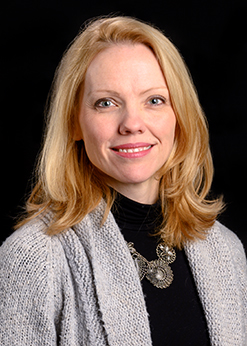Microaggressions are like planting, or watering, seeds of doubt – doubt in abilities, doubt in whether one belongs, doubt in worthiness, doubt in identity, and doubt in life decisions/paths.
– Dr. Gretchen Neigh
Acknowledgements: This issue’s column was a collaborative piece with Dr. Gretchen Neigh, Dr. Debra Bangasser and Dr. April Thames. Thank you for contributing commonplace examples of microaggressions and raising awareness to empower scientific society memberships to work together to exclude them.
Over the last decade professional societies have made a concerted effort to improve diversity and create an environment of inclusion. Since PMG began in 2008, progress has been made. It has been exciting to see both men and women elevate others who were not like them and see positivity in disagreement on key issues. Throughout my time in association management, I have watched the many organizations grow and change, but yes, we still have a LOT more work to do to create a truly welcoming and inclusive environment.

Blog By Sarah Timm
President and CEO
Although we have made progress in the realm of inclusivity, one area where we all have the power to enact change for the better is to work together to eliminate microaggressions. The definition of a microaggression is, “a statement, action, or incident regarded as an instance of indirect, subtle, or unintentional discrimination against members of a marginalized group such as a racial or ethnic minority.” We have all, likely, witnessed a number of these at the professional meetings. Most of the offenders are not aware they are committing a microaggression, however, they leave the victim feeling less welcome to the organization and its meeting. At a recent meeting, while in the lobby, I was introduced to an attendee I had not yet met who quickly stated that I was not what he expected….”so young to be part of the leadership of an organization.” I quickly dismissed the comment, to not make him or the others in the conversation feel uncomfortable, but was offended. While this person was attempting to be charming and complimentary of my position, the interaction left me feeling doubt in my abilities. While this is an obvious example of a microaggression, many witnessed have been less obvious. For example:
- “Where are you from?” This could be quite innocent, and the person may be asking where someone is currently working or studying – but for people who already feel like outsiders for other reasons, this question can be unsettling and bring up feelings of exclusion or judgement about whether or not they should be there.
- “Do you have children?” Again, this question may be very innocent in nature, but unless it is someone that you are close enough to have a personal conversation with, it should be off limits as a question. This question is very common, and it is an issue for several reasons. 1) Given that the focus of the professional interaction should be on the work, and this derails an opportunity for scientific discussion. 2) The topic of children can be unsettling because women face an extraordinary amount of pressure to have or not have children in their personal lives, and such judgement has no place in their professional lives. 3) Questions about children often are a gateway to more microaggressions including: “Who’s taking care of your children while you’re here?” “Is it hard being away from your children?” “Do you think you will have (more) children?” “Don’t worry, there is still time to have children”. None of these lines of questioning belong in a professional setting, even if they are well intentioned.
- “I’m not a racist. I have several Black friends.” “As a woman, I know what you go through as a racial minority.” This tendency to deny racial biases is a common defense statement, yet offensive to persons of color because it sends the message that a person is free of biases simply if they have friends of color, and/or that being part of one minoritized group allows one to understand the experiences of all minoritized groups.
- “I don’t see color” – this is another common attempt (often by Whites) to convey that they don’t want to judge people by the color of their skin. However, this is actually a “microinvalidation” because statements such as these essentially ignores the lived experiences of historically marginalized groups. It is important to recognize the intimate aspects of one’s racial and cultural identity.
- “Your parents must be so proud.” Or similar remarks…. Again, could be completely innocent, but a comment focused on lineage is likely stemming from an internal bias or assumption and it will almost definitely be perceived as such. This type of comment could convey to the receiver of the comment that the speaker is surprised they have progressed this far in their career. This type of comment can also tap into previous experiences of systemic bias.
- The above comment also implies assumptions regarding age, and comments about youthfulness in general are problematic in a professional setting. Comments focused on youth are destabilizing because such comments reinforce that the person sees you as young and inexperienced.
- On the opposite end of the spectrum of ageism, are comments such as: “What are your plans for retirement?” This statement signals you are too old to be working and are equally inappropriate at a professional conference unless there is an existing personal relationship.
- “Wow, good looks and you’re smart too.” We don’t think we need to narrate this one! Just don’t say it!
- “That speaker was attractive in more ways than one.” Followed by laughter from multiple male attendees. Although the person targeted may not hear the comment, any female attendee that hears this comment is being reminded that in addition to their qualifications, they are also judged daily on their appearance.
- “Are you married?” Or a similar inquiry of relationship status, can put an individual in an uncomfortable situation if they have not chosen to disclose or discuss their sexual identity and/or personal relationships.
Microaggressions against those with mental illness are also of serious concern as the ACNP is advocating to eliminate the stigma of mental illness. This is a particular area of concern and one we wanted to address. Some examples of these microaggressions include:
- “We don’t want to overly stress you” directed at someone who has a mental illness. It is problematic because it might assume incompetence.
- Someone with an anxiety disorder is nervous because of a normal situation such as an upcoming job interview might be told, “Oh, no, you’re feeling anxious again! Maybe you shouldn’t do this interview.”
- “She’s acting schizo.” It uses the diagnosis of schizophrenia as an insult.
Microaggressions are incredibly common in today’s world. In fact, we are likely all guilty of committing a microaggression at one time in our lives. My goal is to raise awareness and make us all mindful that a seemingly innocent question or comment can fill another person with doubt, frustration, and feelings of exclusion. I recently watched a quick video on You Tube comparing microaggressions to mosquitoes. While there is some poor language in this 2-minute video (warning!), I think it illustrates the concept incredibly well.
Finally, my plea to you is to be more aware of your interactions with others, especially at PMG hosted meetings, as I want everyone to feel welcomed and valued. You have the power to make a difference through increased awareness and thoughtful attention to the prevention of microaggressions.


